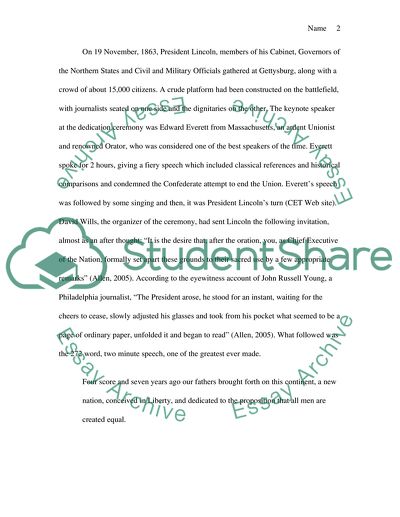Cite this document
(“The Gettysburg Address Essay Example | Topics and Well Written Essays - 1250 words”, n.d.)
Retrieved from https://studentshare.org/miscellaneous/1540917-the-gettysburg-address
Retrieved from https://studentshare.org/miscellaneous/1540917-the-gettysburg-address
(The Gettysburg Address Essay Example | Topics and Well Written Essays - 1250 Words)
https://studentshare.org/miscellaneous/1540917-the-gettysburg-address.
https://studentshare.org/miscellaneous/1540917-the-gettysburg-address.
“The Gettysburg Address Essay Example | Topics and Well Written Essays - 1250 Words”, n.d. https://studentshare.org/miscellaneous/1540917-the-gettysburg-address.


